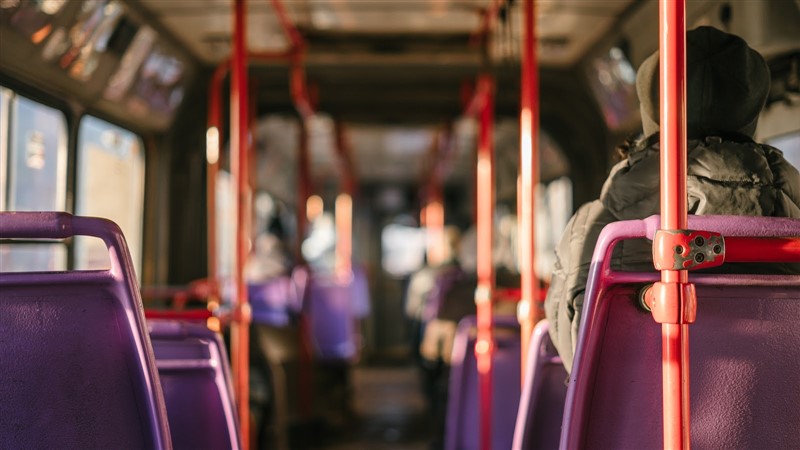Travel, Traveled & Travelling – What’s the Difference?
| Candace Osmond
Candace Osmond
Candace Osmond studied Advanced Writing & Editing Essentials at MHC. She’s been an International and USA TODAY Bestselling Author for over a decade. And she’s worked as an Editor for several mid-sized publications. Candace has a keen eye for content editing and a high degree of expertise in Fiction.
Traveling is a pleasant experience. You learn new cultures, meet new people, and taste new food. But is it traveling or travelling ? Is it travelled or traveled ?
Let me tell you that all four spellings are correct. I’ll show you the difference between traveled vs. travelled and traveling vs. travelling in this guide.

Does Travelled Have One or Two Ls?

If you read different writing pieces, you’ll notice that the simple past and participle forms of the verb travel are either traveled or travelled. Both spellings are correct. Therefore, travelled can have one or two Ls.
Traveled, travelled, and traveling come from the el verb travel, which means to go from one place to another. But, as a Canadian who mostly writes for a US audience, I get the confusion.
Traveled vs. Travelled
Now that you know both traveled and travelled are correct, when do you use which?
Traveled is the correct American English spelling. This English variant follows a single L to simplify English words. Other examples of simplified American spellings include humor instead of humour and annex instead of annexe.
Noah Webster of Webster’s Dictionary is a famous person who advocated for traveled instead of travelled . So if you’re American writing for an American audience, let them know you traveled instead of travelled to Europe.
Here are some examples of traveled in a sentence.
- How many miles had they traveled today?
- I traveled to Germany last month.
- The 2022 Rockefeller Center Christmas tree has finally arrived at Rockefeller Plaza in New York City after it was cut down from its home in Queensbury, New York, and traveled 200 miles to the Big Apple. [ Today ]
Travelled is the British English spelling of the word. This English variant with two Ls is the original spelling of the verb. Travelled is also more common worldwide. For instance, Canada uses travelled because it’s one of the British Commonwealth countries.
Here are some examples of travelled in a sentence.
- The famous adventurer travelled around the world.
- He travelled thousands of miles during the presidential campaign.
- Alex Sullivan, an Everton fan who has travelled to Qatar to support England during the World Cup, told talkSPORT that “we were having a good time, enjoying ourselves.” [ Marca ]
Traveling vs. Travelling
The rule for traveling vs. travelling is the same as traveled vs. travelled.
We use traveling as the American English spelling, as the linguist and lexicographer Noah Webster recommended. This significant person preferred shorter versions of words, which many Americans instantly followed.
Here are some examples of traveling in a sentence.
- Rory and I were traveling during her birthday.
- Our traveling expenses were lower than expected.
- While traveling with his wife, Roxana, and his two young sons during the offseason, Ellis concluded that he had soured on many aspects of the NBA grind. [ Washington Post ]
Use travelling as the British, Canadian, and Australian spelling of the present participle form of travel.
Here are some examples of travelling in a sentence.
- I enjoy travelling with my family every summer.
- My travelling companion moved to Oklahoma with her husband.
- As every keen traveller knows, there are a number of checks and research one must undertake before travelling to a new country. [ CN Traveller ]
Travel, Traveled, and Travelling Summary
While travel is a simple and common English word, its derivative forms can be confusing even for the best English writers. But I hope this guide helped you understand the difference between traveled vs. travelled and traveling vs. travelling.
Remember that traveled and traveling with a single L are the American spellings, while travelled and travelling with two Ls are the British and Canadian spellings.
Grammarist is a participant in the Amazon Services LLC Associates Program, an affiliate advertising program designed to provide a means for sites to earn advertising fees by advertising and linking to Amazon.com. When you buy via the links on our site, we may earn an affiliate commission at no cost to you.
2024 © Grammarist, a Found First Marketing company. All rights reserved.
Grammarflex

“Traveling” or “Travelling” (Which Spelling is Correct?)
- February 12, 2024

Traveling or travelling?
The verb travel , which is to “go from one place to another, especially over a long distance”, uses different spellings based on UK English and US English:
- British English spells “ travelling ” with the double “L”.
- American English spells “ traveling ” with one “L”.
The same goes with other verb forms of “travel” in the past tense i.e., traveled and travelled ; or as a noun, traveler and traveller .
Other words (like traveling or travelling)
Word forms of travel.
Other verb/noun forms also conform to the same spelling rules based on US/UK English:
Sentences with traveling/traveling (present participle)
The travelling / traveling public have had enough of fare increases.
She grew up in a travelling / traveling family.
The birds are travelling / traveling south for the winter.
She enjoys travelling / traveling around Europe.
Sentences with traveled/travelled (past tense)
They travelled / traveled cross-country from New York to California.
The pain travelled / traveled down his back.
They travelled / traveled on the bus to and from work together.
Synonyms of travel
- peregrinate (to travel especially on foot)
Phrases with travel
- travel light
- travel-sick/travel sickness
- travel agent or agency
Origin of the word travel
Etymonline on travel :
Late 14c., “to journey,” from travailen (1300) “to make a journey,” originally “to toil, labor”. Replaced Old English faran . Related: Traveled ; traveling . Traveled (adj.) “having made journeys, experienced in travel” is from early 15c. Traveling salesman is attested from 1885. —Etymonline, travel.
Read more about US English vs. UK English
- Harper, Douglas. “Etymology of humor.” Online Etymology Dictionary, Accessed 12 February, 2024.
- “Peregrinate.” Merriam-Webster.com Dictionary, Merriam-Webster, https://www.merriam-webster.com/dictionary/peregrinate . Accessed 12 Feb. 2024.
Recent Posts

Is it Nerve-Racking, Nerve-Wrecking or Nerve-Wracking?
Which is correct: nerve-wracking or nerve-racking? To describe something as extremely irritating, annoying, or trying; (as in, a nerve-racking day; or a nerve-racking noise), we

“Beck and Call” or “Beckon Call”? Which is Correct?
Meaning of ‘beck and call’ ‘To be at someone’s beck and call‘ is an idiomatic expression that describes being immediately available, or ready to be

What’s the Meaning of the Word “Connotation”?
Ever catch bad vibes from a text? Any feeling or internal response you have from the actual words used to is its connotation; which perhaps


What’s the Difference Between Ambiguous & Ambivalent?
Are ambiguous and ambivalent the same? Something ambiguous (an adjective) is unclear, vague and open to different interpretations. To be ambivalent (also an adjective) means

When to Use Have or Had? (Explained with Examples)
When should you use “have” or “had”? When is it correct to use have, has, or had? Phrased differently, what’s the past tense of have?

What’s the Past Participle? (Explanation & Usage)
The past participle is a form of a verb that can appear as an adjective, or be used to form specific tenses and the passive

Emigrate vs. Immigrate (Meaning + Examples)
Meaning of emigrate vs. immigrate To immigrate is the verb form of the noun immigrant; referring to someone that’s moved away from their birth country

Recurring vs. Reoccurring (Correct Usage, + Examples)
Did you have a recurring or reoccurring dream? If you’re finding the difference between these two words befuddling, then this post is for you. How

What’s the Difference Between Nevertheless vs. Nonetheless?
Nevertheless vs. nonetheless Nevertheless and nonetheless are synonyms that both belong to the same part of speech; i.e, they’re compound adverbs that express contrast. There

Traveling vs. Travelling: What’s the Difference?

“Traveling” and “travelling” are both correct. The former is the preferred spelling in American English; the latter is the British spelling. In many places around the world, such as Australia and New Zealand, traditional British English has a stronger influence. As a result, people living in current and former British territories tend to prefer longer spelling variants, such as “colour,” “manoeuvre,” and “aluminium.” Even for words without longer and shorter versions, Americans and Brits sometimes use different letters, as in “pretence” (vs. “pretense”) and “analyse” (vs. “analyze”).
To be fair, many of these British spellings predate the American spellings. The United States adopted simpler variants and shorter spellings based on the work of one man: the lexicographer and linguist Noah Webster. At the turn of the 19th century, he wrote the dictionaries and textbooks that would come to define American usage. As the Encyclopædia Britannica explains, “Webster was instrumental in giving American English a dignity and vitality of its own. Both his speller and dictionary reflected his principle that spelling, grammar, and usage should be based upon the living, spoken language rather than on artificial rules.”
Webster decided that adding a suffix, such as the present participle -ing , should require double consonant spelling when the emphasis is on the last syllable in a multi-syllable word. Because the word “re pel ” has a stronger second syllable, “repelling” has two L s. Words like “travel,” where the emphasis is on the first syllable, should be written with a single consonant.
So, that’s why both spellings work. Thanks to Noah Webster, Americans prefer traveling and South Africans prefer travelling.
Your writing, at its best
Compose bold, clear, mistake-free, writing with Grammarly's AI-powered writing assistant
According to the Online Etymology Dictionary , the word “travel” probably comes from the vulgar Latin word tripaliare, “to torture.” That tells you how much people enjoyed journeys back in those days! By the 12th century, Old French adopted the word travail, meaning “work, labor, toil” or “arduous journey.” Use of the verb travailen in English dates back to 1300, and the spelling “travel” began appearing later that century.
In Shakespeare’s Macbeth , which likely dates from around 1606, we can see the line, “And yet darke Night strangles the trauailing Lampe.” In this example, we can see both the – ai- spelling variant and the use of the letter U for V sounds, which was common in the middle of a word.
The second edition of John Milton’s Paradise Lost (1674) exhibits a spelling variant closer to the modern form of “travelled”:
And long he wanderd, till at last a gleame
Of dawning light turnd thither-ward in haste
His travell’d steps;
From these works, we can see that both the single L and double L spelling have historical precedents.

Definitions
Merriam-Webster defines the word “traveling” as an adjective and lists “travelling” as a variant spelling.
The dictionary provides the following meanings:
- going to different places instead of staying in one place
- carried by, used by, or accompanying a traveler
Traveling can also be a conjugation of the verb “to travel.” Merriam-Webster defines travel as, “to go on or as if on a trip or tour” and “to move or undergo transmission from one place to another,” among other definitions.
According to Thesaurus.com , synonyms for traveling include:
Other Words and Phrases
A “traveler’s check” is a preprinted check, used in the place of cash, intended to protect international travelers from theft. The Online Etymology Dictionary explains that the term originated in 1891.
A “travel-agent” or “travel agent” is a person or company employed to make travel arrangements. Although the term originated in 1925, the first travel agents ( Cox & Kings ) predated the moniker by over 150 years.
U.S. traveler Burton Holmes invented the word “travelogue” by combining the word “travel” and the Greek suffix – logue. A travelogue describes a piece of writing, a lecture, or a film about travel.
“Taking the path less traveled” is an idiom used to describe an uncommon choice. The phrase comes from the Robert Frost poem, “ The Road Not Taken ,” which contains the lines: “Two roads diverged in a wood, and I— / I took the one less traveled by.”
“Traveling light” is an idiom referring to someone who travels without much luggage. The phrase can also be used in a figurative sense to describe someone without ties or responsibilities.
The Words in Context
“…Experts say that traveling by car may be the safest option in a pandemic — but road trips still come with risks.” — The Washington Post , “Hitting the Road? Here’s What to Know…”
“An expanding list of Canadian politicians are in hot water after being caught vacationing or travelling abroad amid a worsening COVID-19 pandemic at home.” — CTV News , “Growing List of Canadian Politicians …”
“New York City has introduced quarantine rules for international travellers following emergence of new Covid variants in countries like the UK.” — BBC News , “Coronavirus: New York City Orders International Visitors…”
“Belize is the only English-language-official country in Central America. As a popular tourist destination, English is spoken by everyone, and many prices are listed in U.S. Dollars (the Belize dollar is tied to the U.S. Dollar with a fixed exchange rate), making it a comfortable destination for first-time international travelers.” — USA Today , “Did you know? English is the Official…”
- https://www.etymonline.com/word/travail
- https://www.etymonline.com/search?q=travel
- https://www.merriam-webster.com/dictionary/traveling
- https://www.merriam-webster.com/dictionary/travel
- https://www.thesaurus.com/browse/traveling?s=t
- https://www.poetryfoundation.org/poems/44272/the-road-not-taken
- https://www.washingtonpost.com/travel/tips/road-trip-rest-stop-covid/
- https://www.ctvnews.ca/politics/growing-list-of-canadian-politicians-caught-travelling-abroad-despite-pandemic-1.5251039
- https://www.usatoday.com/story/travel/destinations/2020/02/03/english-official-language-these-five-countries/4556924002/
- https://www.bbc.com/news/world-us-canada-55432977

Kari Lisa Johnson
I’m an award-winning playwright with a penchant for wordplay. After earning a perfect score on the Writing SAT, I worked my way through Brown University by moonlighting as a Kaplan Test Prep tutor. I received a BA with honors in Literary Arts (Playwriting)—which gave me the opportunity to study under Pulitzer Prize-winner Paula Vogel. In my previous roles as new media producer with Rosetta Stone, director of marketing for global ventures with The Juilliard School, and vice president of digital strategy with Up & Coming Media, I helped develop the voice for international brands. From my home office in Maui, Hawaii, I currently work on freelance and ghostwriting projects.
Recent Posts

Allude vs. Elude?

Bad vs. badly?

Labor vs. labour?

Adaptor vs. adapter?

IMAGES
VIDEO